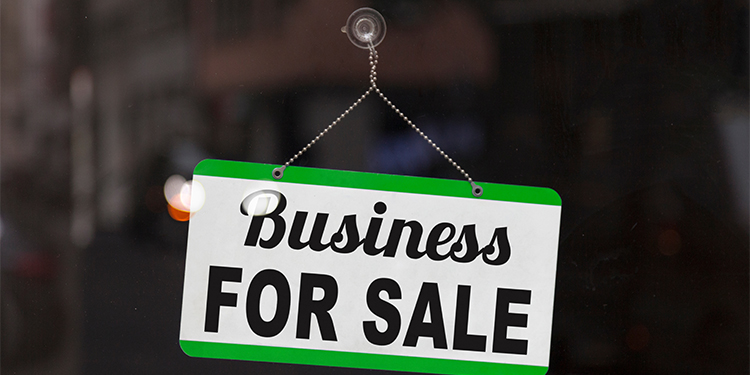
Business Broker and M&A Advisory Fees
When you’re ready to sell your business, you’ll find a supportive team of professionals ready to assist you every step of the way.
How can you get the support you need without breaking the bank? We’ll walk you through it all, from the fees for business brokerage and M&A advisory services to what you’ll get for your money.
Should You Hire a Business Broker or M&A Advisor?
Business brokers and M&A advisors offer similar services. The difference is that business brokers typically work with transactions under $5 million, and M&A advisors specialize in middle-market businesses priced from $5 million to $50 million.
A business broker or M&A advisor knowledgeable in your industry can bump up your sale price, save you time, and ensure the sale process is confidential by:
- Providing a business valuation that helps you achieve an optimal sale price
- Marketing to attract the widest possible audience and generating competition among bidders
- Qualifying prospective buyers so you don’t waste time with potential buyers who can’t close the deal
- Negotiating the sale to get the best final sale price
- Fielding requests and inquiries so you avoid interruptions and distractions
- Helping gather documentation for due diligence
Business brokers focus on getting the deal done, while M&A advisors often come into the process early and help you to prepare your business for sale. If you need help increasing revenue, evaluating your business operations, or other advice on improving your business performance before listing your company for sale, an M&A advisor might be a better choice.
You can also handle the sale process yourself. Before you do, consider that you can only sell your business once. If your asking price is low and you leave money on the table, you won’t get another shot.
Keep in mind, too, that a business sale can take between six and 12 months. You’ll have to split your time between running your business and selling it. Juggling both can take a toll on your business performance, reduce your business value, and result in a lower selling price.
How Much Does It Cost to Hire a Business Broker or M&A Advisor?
The purchase price of the business is one of the biggest factors that determine the pricing model of how much you’ll pay for services.
Brokers and M&A advisors use several pricing models including:
- Flat commission rate
- Scaled commission rate
- Upfront retainer plus commission on the sale
- Flat fee
Business brokers typically work with small businesses in the $1 million to $5 million range, and they charge a commission based on the sale price.
M&A advisors typically handle sales from $5 million to $50 million. The most common fee arrangement includes an upfront flat fee retainer and a commission (called a success fee) on the sale price.
There is no hard and fast rule for the pricing models business brokers or M&A advisors use, meaning the fees are often negotiable. You’ll want to look closely at when the commission is payable and consider negotiating the payment date if your sale includes an earnout or seller financing. If the broker is using a scaled commission rate, you might also be able to negotiate different thresholds for the pricing tiers.
Here is a more detailed review of charges and examples of how each pricing model works.
Business Broker Fees
Generally, the higher the sale price, the lower the commission percentage. When business brokers work with small business sales of $1 million and under, the commission rate ranges from 8% to 15%. Most often, the commission rate is 10% for sales less than $1 million, and a lower rate is applied when the sale is $1 million to $5 million.
Most brokers don’t require upfront retainers, but they might add upfront fees for conducting business valuations and providing other services.
Broker Fees for Businesses Under $1 Million
Small businesses, like Main Street businesses with revenues of $1 million or less, typically pay a commission fee at the high end of the range. The rate for businesses between $1 million and $5 million usually fall at the lower end of the range.
For example, a nail salon that sells for $700,000 might pay 12% commission on the final sale price of $84,000. A nail salon with revenues of $1 million might pay a 10% sale commission or $100,000.
Usually, business brokers charge a minimum fee for very small businesses. The fee usually ranges from $10,000 to $25,000. Let’s say the nail salon owner in the example above worked with a broker whose standard commission rate is 10% of the purchase price, and the nail salon sold for $80,000. In this example, the broker might set a flat fee of $10,000, even though the commission rate on the sale price would be only $8,000.
M&A Advisory Fees
M&A advisors typically charge an upfront retainer fee and a commission formula that decreases as the size of the transaction increases.
Retainers can range from $5,000 to $50,000 depending on the M&A firm and the complexity of the sale. Many firms deduct the retainer fee from the success fee when the deal is complete.
M&A firms often calculate success fees using several variations of the Lehman Formula, which is a sliding scale of percentages based on the transaction size. Some business brokers use this method as well.
The Lehman Formula works like this:
- 5% on the first million of the sale, plus
- 4% on the second million, plus
- 3% on the third million, plus
- 2% on the fourth million, plus
- 1% for everything above $4 million.
Let’s say a business sells for $3 million. The success fee would be:
5% of $1 million = $50,000 plus
4% of $1 million = $40,000 plus
3% of $1 million = $30,000
For a total success fee of $120,000
Since the development of the Lehman Formula, business sale prices have increased significantly, and more often than not, M&A advisors now apply a Double Lehman Formula.
- 10% on the first million of the sale, plus
- 8% on the second million, plus
- 6% on the third million, plus
- 4% on the fourth million, plus
- 2% on any sale proceeds above $4 million.
Using the Double Lehman calculation, a business that sells for $3 million would pay a success fee of $300,000.
If you compare the straight 10% commission rate typical of most business brokers with the Double Lehman Method typical of most M&A advisors, you can see that the fee for the sale of a $3 million business would be the same using either calculation.
Fee Structure for Mid-Sized Businesses
Now let’s look at what happens when the sale price increases to $5 million.
Based on a straight business broker commission percentage of 10%, a business that sold for $5 million would pay the broker $500,000. Using the Double Lehman Method, the brokerage fee is:
10% of $1 million or $100,000, plus
8% of $1 million or $80,000, plus
6% of $1 million or $60,000, plus
4% of $1 million or $40,000, plus
2% of $1 million or $20,000, plus
For a total success fee of $300,000
Most M&A Advisors handle middle-market sales of $25 million and more. But these advisors can also work with lower middle-market businesses valued between $5 million and $25 million. If your business falls within this range, you might pay a lower fee working with an M&A broker using the Double Lehman Method than working with a business broker who works on a straight commission percentage.
Keep in mind, though, M&A brokers also have a minimum commission, usually between $35,000 to $50,000.
Other Advisors Small Business Owners Need When Selling
It’s important to consider that a business broker or M&A advisor won’t handle everything that comes up during the sale of your business. Tasks like purchase price allocation, drawing up the sales contract, and more, will require additional professional help.
Most business owners will need an attorney and a CPA experienced in mergers and acquisitions.
If your business sale includes real estate, you might also need a commercial real estate broker who will charge a separate fee, usually ranging from 4% to 6% of the property’s purchase price.
One word of caution: While an appraiser can provide a business valuation at a much lower fee than a broker (appraiser fees can range from $1,000 to $20,000), they won’t be able to incorporate market data and conditions into the appraisal. An appraiser’s business valuation is best suited for tax purposes, less so for developing a clear picture of the business’s value in the marketplace.
What to Look for When Hiring a Business Broker or M&A Advisor?
Cost isn’t the only factor to consider when you hire an advisor to sell your business. It’s best to look for a broker or advisor who is familiar with the specific industry where you operate and is experienced in selling similar businesses.
Although no special certification is required for business brokers or M&A advisors, checking their professional affiliations can show their commitment to their career.
Small business owners should conduct due diligence on the advisors they are considering hiring. Look at:
- Their track record. Ask how many businesses they’ve successfully sold and how the sale price compares with the business’s asking price.
- Their valuation method. If your business is complex, it might require a more sophisticated valuation method than the traditional multiple of earnings.
- Their marketing strategy. Reviewing an advisor’s website can tell you whether they are using the most up-to-date marketing tools. You can also ask to review marketing packages they’ve created for other clients.
Finally, choose an advisor you are comfortable working with and check their references to get an idea of how they work with other clients. Visit BizQuest’s Business Broker Directory to find business brokers near you.





